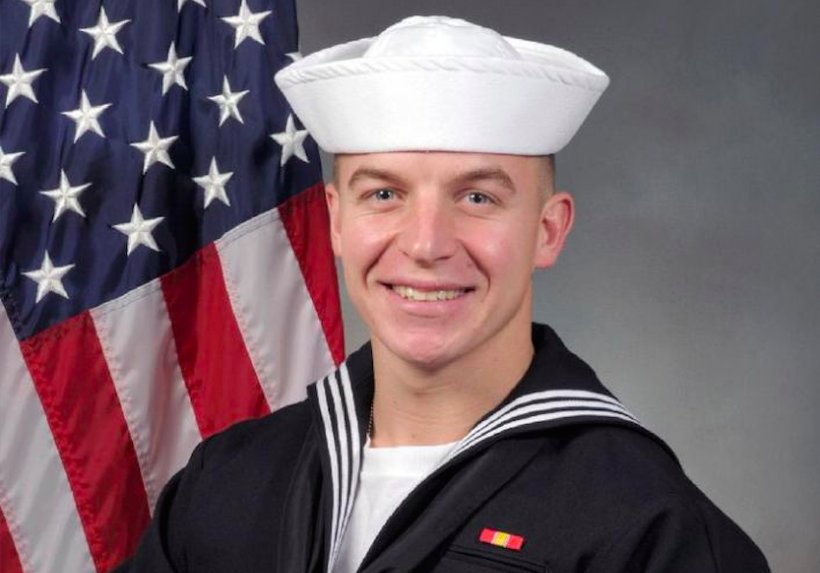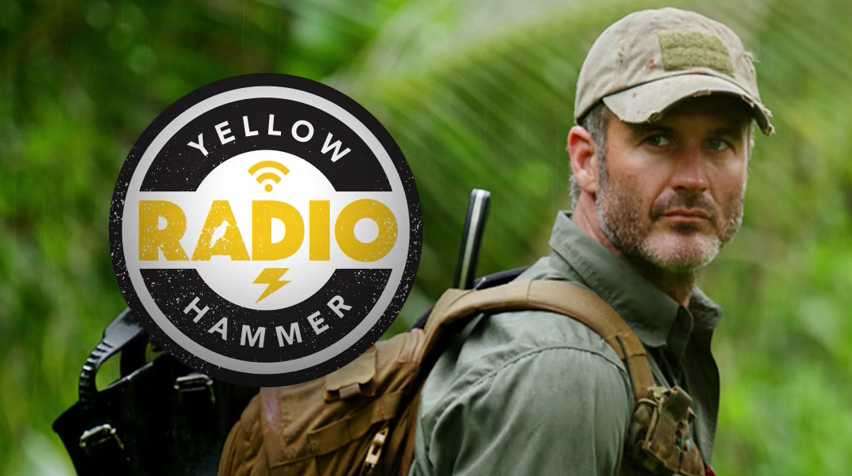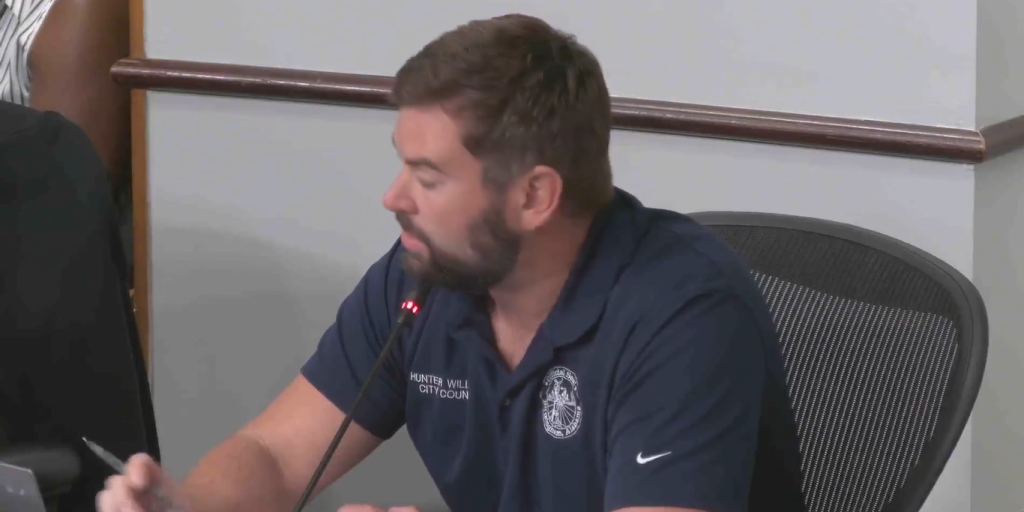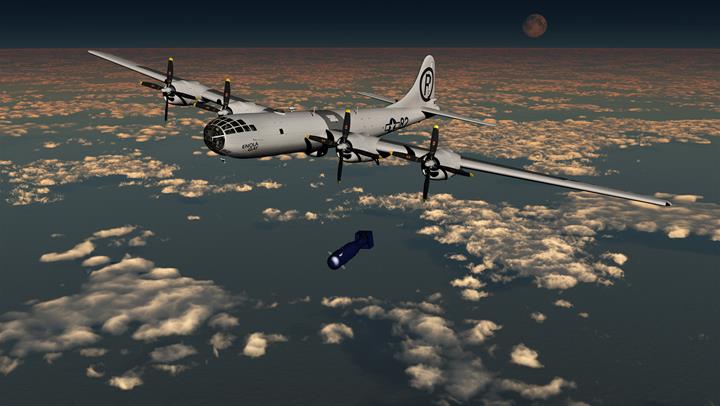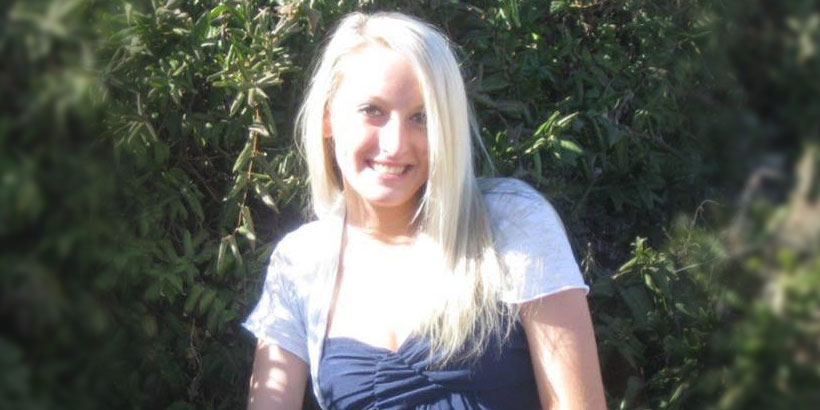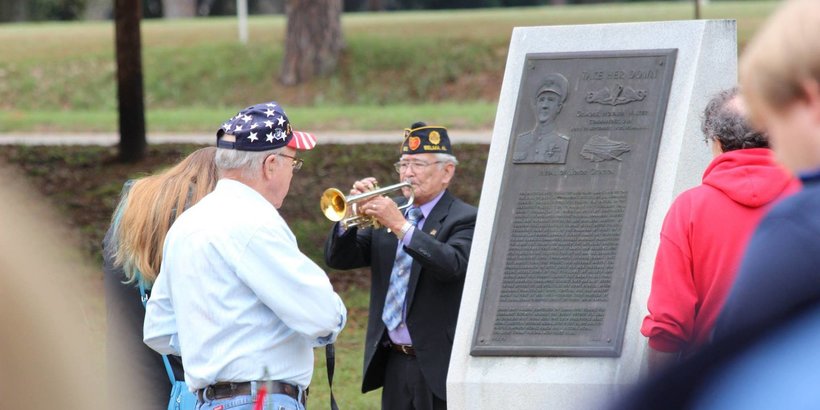(Audio above: Navy SEAL Joel Lambert discusses the death of Seaman James “Derek” Lovelace during BUD/S)
In a recent interview on Yellowhammer Radio, Navy SEAL legend Joel Lambert, who is also the star of Discovery Channel’s Predators Up Close and Lone Target, paid tribute to Seaman James “Derek” Lovelace, who was recently killed while attempting to become a SEAL himself.
“He had the courage to do something that 99.999 percent of the world never will have, and he gave his life in the attempt to join our brotherhood,” said Lambert. “And there is so much respect in that.”
Subscribe to the Yellowhammer Radio podcast.
Lovelace, a 21-year-old Navy SEAL trainee who played college baseball in Alabama, died during his first week of basic underwater demolition/SEAL training, more commonly referred to as BUD/S.
Lambert said Lovelace died during an exercise known as “Beehive.”
Beehive is one of the things that we do very early on to test a student’s comfort in the water, because everything we do is water-based… So our comfort in the water in very adverse circumstances is a hallmark of what we do. And if you can’t be ridiculously comfortable in really awful conditions under the water, this isn’t the job for you.
And so Beehive is just getting them in the deep end of the pool, 15 feet, and they’re clothed – boots and camis – and they’re kind of huddled together and mashed together. They have to take their clothes off and make flotation devices and put them back on, which isn’t difficult, but when you’ve got 200 guys in the pool and you’re bashing into each other and everyone’s kind of elbowing, and you get shoved under and you’re not able to have the amount of control that you’d like, it’s actually a very stressful situation.
Lambert said trainees dying during BUD/S is rare and is typically the result of “an undiagnosed or unnoticed medical condition that otherwise would never have come to the surface.”
“The amount of physical stress these guys are going through will pull things out of the body that otherwise in normal life would never have come to the surface, never affect them,” explained Lambert, who was a BUD/S instructor for several years late in his SEAL career. “You know, some small issue with their heart or some small, weak wall in a blood vessel in their brain to have an aneurysm.”
But in spite of the criticism the Navy has received as a result of some of the deaths, Lambert believes the tough training is necessary to prepare the future SEALs for the difficult situations in which they will be expected to perform while deployed.
I know there are a lot of people who don’t see it that way, who see it as cruelty or unnecessary. Well, it is necessary. I mean, if you want to have the lions, you can’t feed them lettuce… I had a student die in my BUD/S class actually, in first phase, under similar circumstances, just because of the stress of that particular evolution.
And the instructor staff and the Naval Special Warfare staff are completely on it, and they pull people out, and everything was controlled, and there was no negligence at all. It just was one of those things that, in a high-risk evolution, sometimes things will happen. And everything we do is high-risk.
We’re doing it for the students themselves and we’re doing it for our brothers down range, because we’re looking at this kid, and we’re not trying to kill anybody or hurt anybody, but we’re saying, “If this is too much for you, if this is not going to be something that you’re going to be able to overcome, then there’s no way you’re going to go back and watch my brother’s six while he’s down range. I’m not going to let that happen.”
“But I just want to say, I mean, hats off to him and to his family,” Lambert concluded. “(I have) so much respect for this sailor and for his family, and my condolences to him. He had the courage to do something that 99.999 percent of the world never will have, and he gave his life in the attempt to join our brotherhood. And there is so much respect in that.”
To hear the full interview, check out the YouTube video above, or subscribe to the Yellowhammer Radio podcast.
